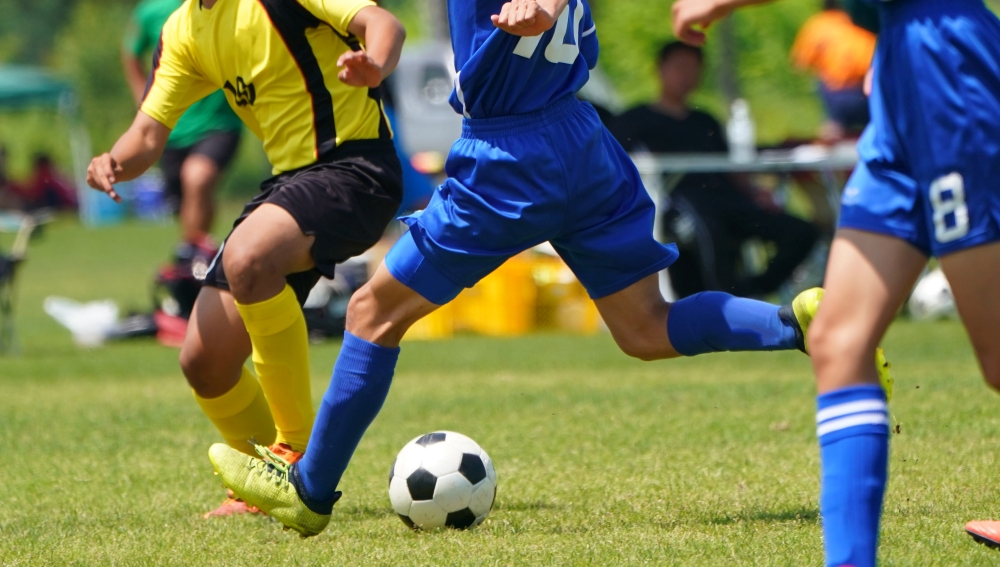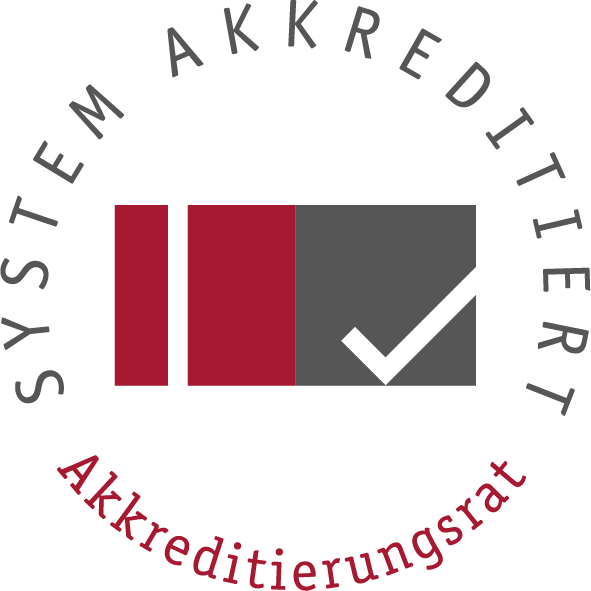High-Performance Sport (M.Sc.)

For anyone interested in understanding the science behind elite and high-performance sports in all its many different forms and in acquiring both theoretical expertise and practical skills in this field, the English-language Master's degree programme 'High-Performance Sport' at Saarland University could be the programme for you.
In addition to offering advanced modules in research methodology and statistics, the programme curriculum also covers the sub-disciplines of sport medicine, sport psychology, training science and the socioeconomics of high-performance sports.
The focus of the M.Sc. programme is on topics of current interest in international elite-level sports: What training methods are used? How do we conduct meaningful performance diagnostics? Which aspects of sport medicine and sport psychology need to be taken into account? What structures exist in the field of international elite sports? How do talent identification and talent development programmes work? What does an effective anti-doping strategy look like?
Students on the programme also gain a deeper understanding of performance physiology, injury prevention and sports nutrition. They become acquainted with internationally recognized elite training and diagnostic programmes and learn to independently plan elite-level training sessions. Other topics covered include stress management, endurance training, performance improvement and anti-doping measures. Graduates from the programme find career opportunities in the global market for professional and high-performance sports, or working in universities at home and abroad, in national or international sport associations and federations and in professional sports clubs.
Saarbrücken is the ideal location for studying this wide-ranging Master's programme. Close cooperative ties exist between the Saarland/Rhineland-Palatinate Olympic Training Base, the Saarland Sports Federation and those departments at Saarland University's Sports Science Institute with an interest in high-performance and elite sports.
Mandatory section: Generic Aspects – Methodology and Basic Theories
- 20 ECTS credits
- comprises a methodological module (10 credits) and a core theoretical module (10 credits)
Compulsory electives section: High-Performance Sport
- 80 ECTS credits
- comprises 16 modules each worth 5 credits
In the compulsory electives section, students select two specialist subjects each worth 20 credits. Students are required to earn at least 5 credits of the total of 80 credits from each area of specialization. The areas of specialization offered are:
- Medicine and physiology in high-performance sport
- Socio-economics of elite sports
- Strength and conditioning in high-performance sport
- Sport psychology in elite environments
In addition, students select specialist supplementary modules worth a total of 20 credits. Students may choose supplementary module elements from the areas of specialization above, provided that these module elements are not part of the student's chosen specialist area.
Students must also choose four freely selectable modules each worth 5 credits from the modules offered within the sport science Master's programmes at Saarland University. Language courses, projects or practical assignments worth up to 10 credits may also be selected.
Final assessment phase
- 20 credits
- The topic addressed in the student's Master's thesis project can be chosen from all areas of study in high-performance sport.
For further details, please refer to the module descriptions.
As the programme has a strong international dimension, students are encouraged to spend time studying abroad. In addition to promoting intercultural competence, the study abroad semester enables students to experience areas of elite and high-performance sports that may not be available or may not be covered in such depth at Saarland University. Students will normally spend their third semester studying abroad.
There are excellent study abroad opportunities within the Erasmus+ partnerships that exist with Liverpool John Moores University (LJMU) in England, where work placements and research projects are available in the areas of sport nutrition, match analysis and molecular biology, and with Rijksuniversiteit Groningen in the Netherlands, where taught courses in the fields of motor control, multilevel analysis, perception and action, and neuromechanics complement the curriculum offered at Saarland University. Universität des Saarlandes ergänzen. There is another work placement agreement with the UCD Institute of Sport and Health in Ireland.
Admission requirements
Students seeking admission to the M.Sc. programme 'High-Performance Sport' must meet the following requirements:
- a Bachelor's degree or equivalent university qualification in sport science or a comparable subject with an overall grade of 2.5 or better on the German grading scale
- an adequate command of English
- a motivation video
Required English proficiency
You will need to demonstrate English proficiency of at least level B2 of the Common European Framework of Reference for Languages (CEFR) by providing one of the following:
- proof that English is your native language
- proof that you have a higher education entrance qualification from an English-speaking country or a qualification from an academic institution in an English-speaking country that permits you to be employed in a recognized professional field (typically: a Bachelor's degree)
- TOEFL (iBT: 72)
- Cambridge First Certificate in English
- IELTS (Score: 5.5)
- proof that you achieved a grade of at least 'good' (at least 10 from 15 points) in an advanced English Abitur class or equivalent (Abitur: German higher education entrance qualification).
Motivation video (duration: 3 minutes)
The 3-minute motivation video (file size max. 25 MB) should present your perspectives in the professional field and your affinity to Saarland University. Please answer in it the following questions:
- Why do you want to study High-Performance Sport?
- Why do you want to study at Saarland University in Germany?
- What qualities and/or experience in the field of competitive sports do you have?
For further details, please refer to the subject-specific regulations.
- Study regulations (in German)
- Examination regulations
- Subject-specific provisions (in German)
- Selection criteria (Anlage 3, § 7) (in German)
- Discontinued regulations (in German)
- Module descriptions: German | English
Students can begin this programme at the beginning of the winter or summer semester. The application period runs to 15 July if you plan to begin studying in the winter semester and from the beginning of December to 15 January if you want to start in the summer semester (only if places are available).
The application takes place online via the SIM portals of Saarland University. If you have questions about the SIM portals, please visit our SIM Saarland support pages.
| Standard period of study | 4 semesters |
| Language of instruction | English |
| English language requirements | GER: B2 |
| Restricted entry | Yes |
| Application period | Winter semester: beginning of June to 15 July Summer semester: beginning of Dezember to 15 January (Only if places are left.) |
| Tuition fees | Not applicable |
| Semester fee | See current fee structure |
| Web page | master-high-performance-sport.de |
Central Student Advisory Service
Saarbrücken Campus
Building A4 4, Ground floor
Phone: +49 681 302-3513
studienberatung(at)uni-saarland.de
www.uni-saarland.de/studienberatung
Central Student Advisory Service
Saarbrücken Campus
Building A4 4, Ground floor
Phone: +49 681 302-3513
studienberatung(at)uni-saarland.de
Central Student Advisory Service

Accredited study programmes
Saarland University was one of the first universities in Germany to achieve Quality Assurance Accreditation and has held the Accreditation Council's official quality mark continuously since 2012.
Quality management
